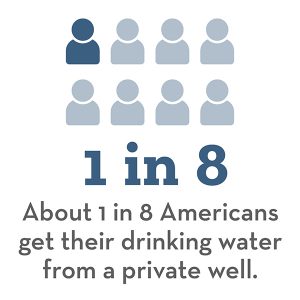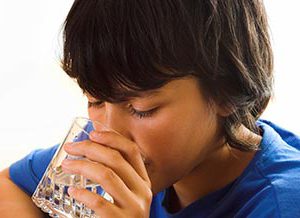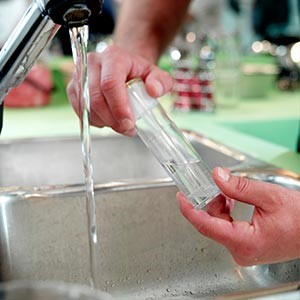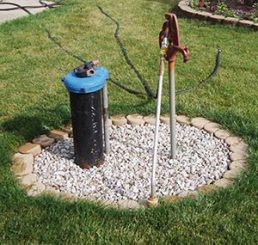Safer Well Water through Stronger Public Health Programs
Posted on by
In a county where 42% of the residents rely on drinking water from unregulated sources, primarily private wells, educating residents on protecting their drinking water sources is a big job. Such is the case in Gaston County, North Carolina, where arsenic, manganese, and E. coli and total coliform bacteria threaten to contaminate wells, compromising the health of the people who use them.
The National Center for Environmental Health works with health departments to protect communities from unsafe well water. The NCEH Safe WATCH cooperative agreement funds health departments to identify and close environmental health service gaps in their programs. Safe WATCH funds 14 state and 5 county health departments, including Gaston County, that serve communities and populations using private wells.
Grantees work to improve their safe drinking water programs and reduce exposures to contaminants affecting private water sources in their communities. In Gaston County, Safe WATCH funding supports the Healthy Wells Program to enhance services for private well owners. As part of this effort, county staff worked with faculty and students from the University of North Carolina at Charlotte (UNCC) to create an electronic, geocoded database for 8,087 private wells from data in paper permits. UNCC students also designed and distributed around 1,500 brochures to promote private well testing and sampled 706 wells for total coliform and E. coli.

In addition, the partners developed an application to facilitate downloading and synchronizing of well coordinates. Gaston County staff can use the app to enter permit information and results from microbial and chemical tests. This means water sampling data and information such as well depth and depth of casing will be available to Gaston County for decision making. The newly georeferenced well locations and water quality information will help Gaston County target areas vulnerable to contamination.
Gaston County staff and the state public health laboratory worked to share electronically test results of inorganic contaminants in new county wells. UNCC students organized these data into a usable database. These achievements improved the Healthy Wells Program’s services to protect private well users in the county.

Safe WATCH Accomplishments
During the 5-year cooperative agreement, Safe WATCH grantees coordinated with state public health and private laboratories to share and organize water sampling data and developed partnerships and state and regional coalitions to reduce hazardous exposures. They also identified 44,263 additional private well records and entered them in digital format; distributed 6,801 free drinking water sample kits at private well outreach activities; and collected 12,328 well water samples and identified 2,310 well water samples serving 5,831 people where contaminants exceeded acceptable levels.
Individual grantees use Safe WATCH support in many ways. For example,
- Under the leadership of the Delta County Colorado Health Department, the West Central Public Health Partnership developed a comprehensive database of groundwater quality information collected throughout the six counties along Colorado’s Western Slope.
- The La Crosse County Health Department supported certification of laboratory staff to test well water for lead and arsenic, reduced testing prices in La Crosse and partner counties, and created a water quality lab in Vernon County, Wisconsin.
- The Tennessee Department of Health (TDH) added personnel to fill program gaps and build collaboration between the environmental health and epidemiology programs. TDH collaborated with the Rural Community Assistance Partner, Communities Unlimited, Inc., to offer water quality testing services for homeowners relying on private wells, springs, and rainwater catchment systems.

Read more about grantee successes and explore videos, case stories, and other promotional tools developed by the grantees.
Why This Work Is Important
About 1 in 8 Americans get their drinking water from a private well. Germs, chemicals, or radionuclides can impact wells and other private drinking water sources. About 1 in 5 sampled private wells have contaminants at levels that could affect health. These water sources are not covered by the federal Safe Drinking Water Act, which regulates public water systems.
Helping Programs Fill Performance Gaps
NCEH’s Water, Food, and Environmental Health Services Branch provides free tools and guidance, training, and research for environmental health practitioners and programs serving states, tribes, localities, and territories. The branch provides resources to help programs fill performance gaps and contribute to larger performance improvement efforts such as voluntary public health accreditation.
Tweet this: “Learn more about NCEH’s #SafeWATCH program, working to improve local safe #drinkingwater programs and reduce exposures to contaminants affecting private water sources in their communities. https://bit.ly/2OIaXWn”


Post a Comment